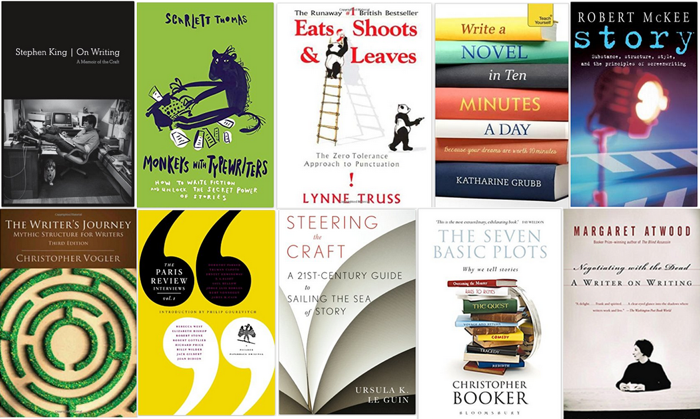6 ways to overcome procrastination and beat writers’ block

We all procrastinate – but you can overcome it and beat writers’ block with practical strategies. So stop putting off your dreams and reward your future self, says Bec Evans.
[rt_reading_time label="Reading Time:" postfix="minutes" postfix_singular="minute"]
I’ve spent the last hour in an internet wormhole ‘researching’ procrastination. I made the usual excuse that it was necessary groundwork for this blog post but. to be honest, I was delaying the task at hand. The instant hit of clickbait was preferable to knuckling down and earning the satisfaction that comes from effort.
I’m not alone. We all procrastinate, often several times a day. Humans are hard wired to seek pleasure and, in this age of distraction, getting side tracked is the norm.
Postponing writing
Writers are the masters of procrastination – it’s far simpler to type a search term into Google than it is to write the first line of a novel. Whether you’re a full-time writer, a part-time scribbler, or a dreamer with ambitions to write, it’s all too easy to delay.
Dr Robert Boice, author of Procrastination and Blocking: A Novel Approach, spent two decades delving into the minds of writers to work out why they are so easily distracted. The people he studied wanted to write – for many it was a requirement of their job – but they put it off because there was something easier or more pleasurable to do.
Procrastinators chose alternative activities. He said they “opt for short-term relief through acts that are easy and immediately rewarding, while generally avoiding the thought (and anxiety) of doing more difficult, delayable, important things.” This focus on immediate pleasure side tracked people from their intention and prevented them from starting.
Procrastinators opt for short-term relief through acts that are easy and immediately rewarding – Robert Boice
But it’s not just about postponing. Boice found many writers get stuck in the middle, often when things get tricky, and this blocks their progress. He explained that this was because of: “paralyzing anxiety and uncertainty, often because the task will be evaluated publicly.”
He called this second group ‘blockers’ and their fear stopped them making progress even though they might have already invested significant time and effort.
The procrastination mindset
Whether you’re a put-off-starting type or a stuck-in-the-middle writer there are certain characteristics that all procrastinators have in common. Boice found that both had an unrealistic belief that the work will get done – somehow. It’s as if saying you’ll pen a novel is enough.
There was also a disproportionate focus on the outcome, rather than the input required to make that dream come true. This caused increased levels of anxiety. Thinking about writing a whole book is understandably scary, whereas writing one word, one sentence, or one page is much less frightening. Finally, there was a tendency towards busyness and rushing as writers tried to compensate for the delay in starting.
The path to productivity – changing your mindset
Just because your procrastination can be defined doesn’t mean you are defined by it. There are simple tricks you can take to avoid distraction and delay to make progress towards your creative dreams.
“There has to be a change in mindset so your present self acts in the interest of your future self”
At heart all procrastinators value immediate rewards more highly than future rewards. There has to be a change in mindset so your present self – the one that wants immediate satisfaction – acts in the interest of your future self – the one who wants to complete a book. This means putting in place a system that rewards long-term activities and punishes the short-term distractions.
6 ways to overcome procrastination and blocking
1. Scheduling
Committing time to write is one of the best ways to avoid procrastination. There are lots of different approaches to finding time to write but essentially it all comes down to scheduling.
Take your diary, find time that you can use for writing and make an appointment so you treat it like any other commitment. Start small – it could just be fifteen minutes a day – and build up from there. It’s important to get into the habit of sticking to a schedule.
Researchers have found the most productive schedule involves writing every day, for no longer than 90 minutes, with regular breaks and fixed end point. Developing a daily practice will take the effort and willpower out of deciding when to write.
2. Rewards
Giving yourself a treat when you’ve completed your task can help you avoid getting side-tracked. Rather than indulging yourself in a procrastination activity before you start, why not use it as a reward for when your writing is completed? Think of something small enough to encourage, but not too big that writing become all about the reward, and you’ll find your motivational sweet spot.
The idea is to reward your future self, even if the future is only an hour’s writing time away.
Another trick is to imagine what you’ll feel like when you’ve finally finished that draft, and use that feeling of satisfaction to keep you focussed on the long-term benefits of what you’re trying to achieve.
3. Environment design
Keeping your desk free of temptation is a sure-fire way to avoid getting distracted.
Dieters have long been told to take candy from their cupboards and replace it with healthy snacks. It’s far harder to gorge yourself on sweets if they aren’t there; in the same way using an internet blocker like Freedom, not having your iPhone next to your computer, and tidying away papers, will keep you focussed on the task ahead.
If reorganizing your writing space gives you an opportunity to procrastinate for days on end, go and write somewhere else.
4. Mental clutter
If your problem is mental distraction you need to file away those diverting thoughts. Channel those mindfulness masters and allow thoughts to pass through the mind without disruption.
Why not use the tried and tested productivity tip from David Allen’s Getting Things Done? He proposed a ‘tickler’ file where you park other ideas – in short, when a thought comes into your head just note it down. When you’ve finished your writing session, you’ve got a handy list of all the other things you can turn your attention to.
5. Free writing
If you’re in a blocking situation and unable to write because you’re scared, anxious and overwhelmed then give free writing a go. Sit down and write anything, get all those fears out of your head and on to the page.
If you’ve scheduled time and cleared the clutter you could try Raymond Chandler’s ‘Nothing Alternative’ method. He explains: “Two very simple rules: a) you don’t have to write; b) you can’t do anything else.” It’s write or nothing.
I guarantee that you’ll want to make use of the time so just write whatever comes into your head. Soon the fear of the blank page will decrease and you’ll be able to get back into your project.
6. Accountability
Setting up an accountability system will keep your writing on track. If you need external support go and find a writing buddy, join a writing group, sign a writing contract, tell your friends and family, go public.
If you’re one of those internally motivated people work out a personal accountability system, for example track your writing.
Take action against distraction
Set yourself up for writing productivity by saying no to procrastination. Ask yourself:
- What type of procrastinator am I? Work out if you struggle to get started or get stuck in the middle.
- When is a good time to write? Find a slot in your diary and schedule some time.
- What is my motivation treat? Think of something small like a cup of coffee or five minutes of Facebook and reward yourself every time you complete a session.
- How can I minimize distraction and interruption? Design your environment to remove procrastination triggers by dealing with clutter or finding a more zen-like environment to write in.
- Is anxiety preventing me from working on my creative project? Try free writing and liberate yourself.
- Who or what will hold me to account? Work out if you need external support or an internal boost and set up a system to keep you on track.
This post previously appeared on the Prolifiko blog, and first appeared on Publishing Talk on 05 March 2016.



Pingback: 10 Great Ways To Beat Procrastination And Get Writing – Renea Guenther